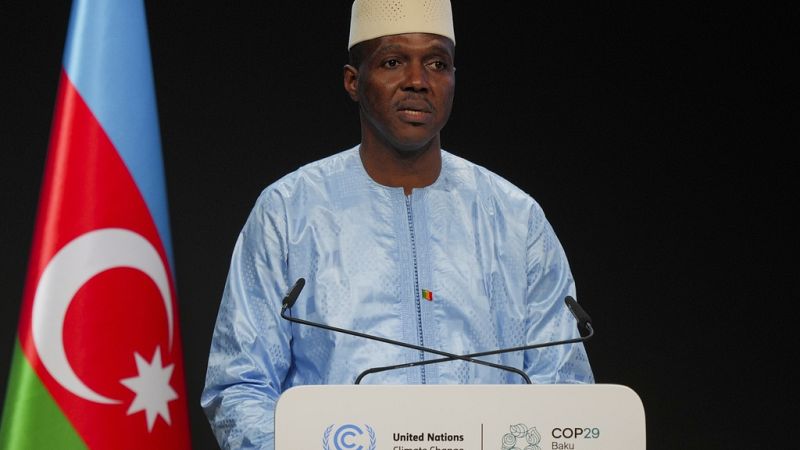Mali’s junta appoints military general as new prime minister

Mali's ruling junta on Thursday appointed a new prime minister from within its military ranks, a day after dismissing the civilian prime minister who had openly criticized the regime.
The appointment further consolidates power in the hands of the military, which has governed Mali since seizing power in a 2020 coup, followed by a second coup in 2021.
On Wednesday, civilian prime minister Choguel Maïga was removed from office after criticizing the junta for delaying the presidential election originally scheduled for 2024. His dismissal was announced in a presidential decree issued by Gen. Assimi Goïta, Mali’s military leader, and read on the state broadcaster, ORTM.
On Thursday, Gen. Abdoulaye Maïga was named as his replacement, according to Alfouseyni Diawara, secretary general of the Malian presidency. The two Maïgas are not related.
The appointment places all three branches of Mali’s transitional government — the presidency, the National Transitional Council (acting as the legislative body), and the prime minister’s office — firmly under military control.
Gen. Abdoulaye Maïga, 43, has held several key roles under the junta, including minister of territorial administration, government spokesman, and deputy prime minister. Analysts believe his close ties to Goïta played a decisive role in his selection.
“The choice of the new prime minister shows that the military is tightening its grip on power. General Maïga is seen as especially close to President Goïta, who wanted someone loyal as the country prepares for possible elections next year,” said Ulf Laessing, head of the Sahel program at the Konrad Adenauer Foundation in Mali.
Laessing added, “Choguel provoked his dismissal by positioning himself as a potential candidate in the elections.”
Although Gen. Abdoulaye Maïga was not one of the five officers directly involved in the 2020 coup, he quickly rose to prominence within the junta and became a key figure in the transitional government.
He is known for his fiery rhetoric, particularly against France and MINUSMA, the now-departed U.N. peacekeeping mission in Mali. During the U.N. General Assembly in September, he sharply criticized Algerian diplomats who accused the Malian army of killing civilians near the border with Algeria.
Since taking power, Mali’s military rulers have tightened their control over the country, cracking down on dissent by severely restricting freedom of expression. More than a dozen politicians and activists have been arrested for speaking out against the junta.
Today

